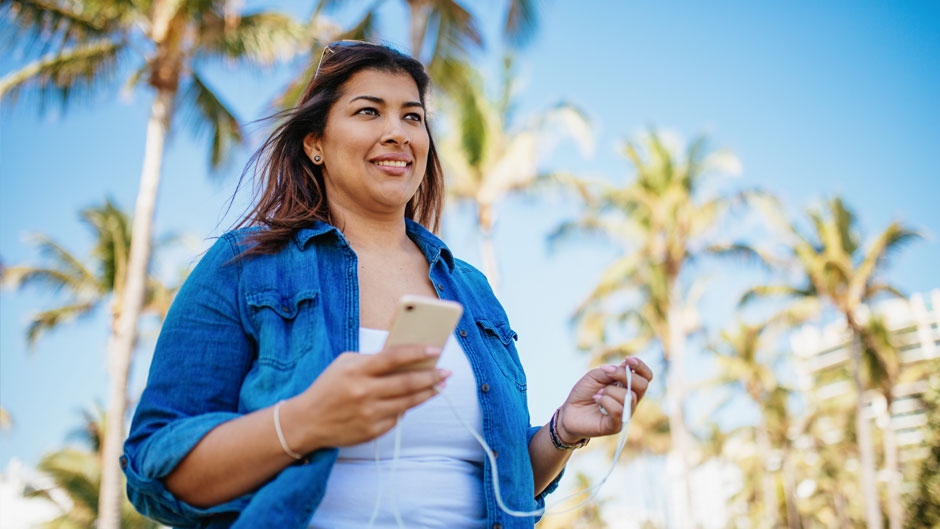The COVID-19 pandemic is making it difficult for people to go outside, walk new neighborhoods, and have new experiences. Under social distancing and other evolving public health restrictions and guidelines, human interaction has changed, and new experiences are few and far between.
Yet, in a study that reveals a connection between our daily experiences and our sense of well-being, researchers at the University of Miami and New York University suggest that even small changes in a person’s physical or mental routine could produce positive effects.
Published Monday in the journal Nature Neuroscience, the study was conducted prior to the onset of the coronavirus pandemic that has limited human movements around the globe. But the researchers believe it may offer insights for those confined to their homes and limited in their social interactions by the guidelines and restrictions from the Centers for Disease Control and Prevention.

Aaron Heller
“Our research suggests that, indeed, people feel happier when they depart from their daily routines—when they explore new places and have a wider array of experiences,” explained co-author Aaron Heller, an assistant professor in the University of Miami College of Arts and Sciences’ Department of Psychology. “So, while it is challenging in the age of COVID-19 to have new experiences, even small changes to the physical routine—like exercising at home, walking around a new block, or taking a different route to the grocery store or pharmacy—may have similar effects.”
Catherine Hartley, an assistant professor in New York University’s Department of Psychology who co-authored the study with Heller, noted that previous studies using animal subjects showed similar results.
“These findings show the benefits of enriched environments across mammals and demonstrate a link between varied experiences and positive emotion,” Hartley said.
To reach their conclusion, the researchers explored the following question: Is diversity in humans’ daily experiences associated with more positive emotional states? To find the answer, they used GPS to track the movement of 122 people living in New York and Miami for up to four months, asking participants—via text message—to report how they were feeling at the time. The results showed that when people experienced more variety during their day—visiting more locations and spending a longer amount of time at these diverse locales—they reported feeling more positive, using descriptions like “happy,” “excited,” “strong,” “relaxed,” and “attentive.”
Curious to learn if the link between exploration and positive emotion was connected to the brain, the researchers decided to take the study a step further and invited about half of the study participants to the laboratory to undergo fMRIs. The brain scans showed that those who experienced strong, positive emotions during diverse experiences exhibited greater activity in the hippocampus and the striatum—the brain regions associated with processing reward through positive experiences.
Hartley and Heller also noted that positive emotions may drive people to seek rewarding experiences more frequently. “And although this is speculative,’’ Heller added, “other types of exploration, including cognitive or mental exploration, may have similar beneficial impacts without requiring large amounts of physical activity.”
In addition to Heller and Hartley, other co-authors of the paper, “Association between real-world experiential diversity and positive affect relates to hippocampal–striatal functional connectivity,” are Tracey Shi, a doctoral candidate and medical student at Columbia University; C.E. Chiemeka Ezie, an M.D. candidate at NYU Grossman School of Medicine; and University of Miami researchers Travis Reneau and Lara Baez along with undergraduate student Conor Gibbons. The research was supported by a Klingenstein-Simons Fellowship Award, a Jacobs Foundation Early Career Fellowship, a National Science Foundation Career Award, and the NYU Vulnerable Brain Project, as well as by a John Templeton Award and the National Institutes of Health.

